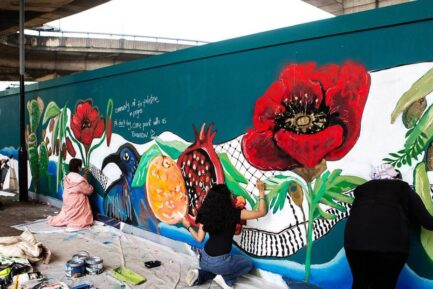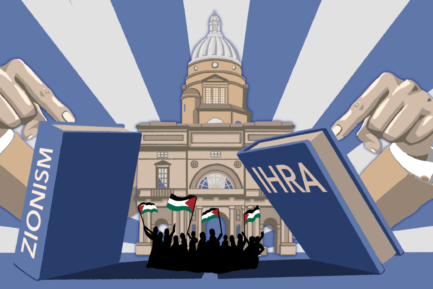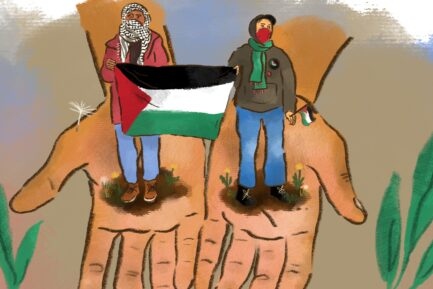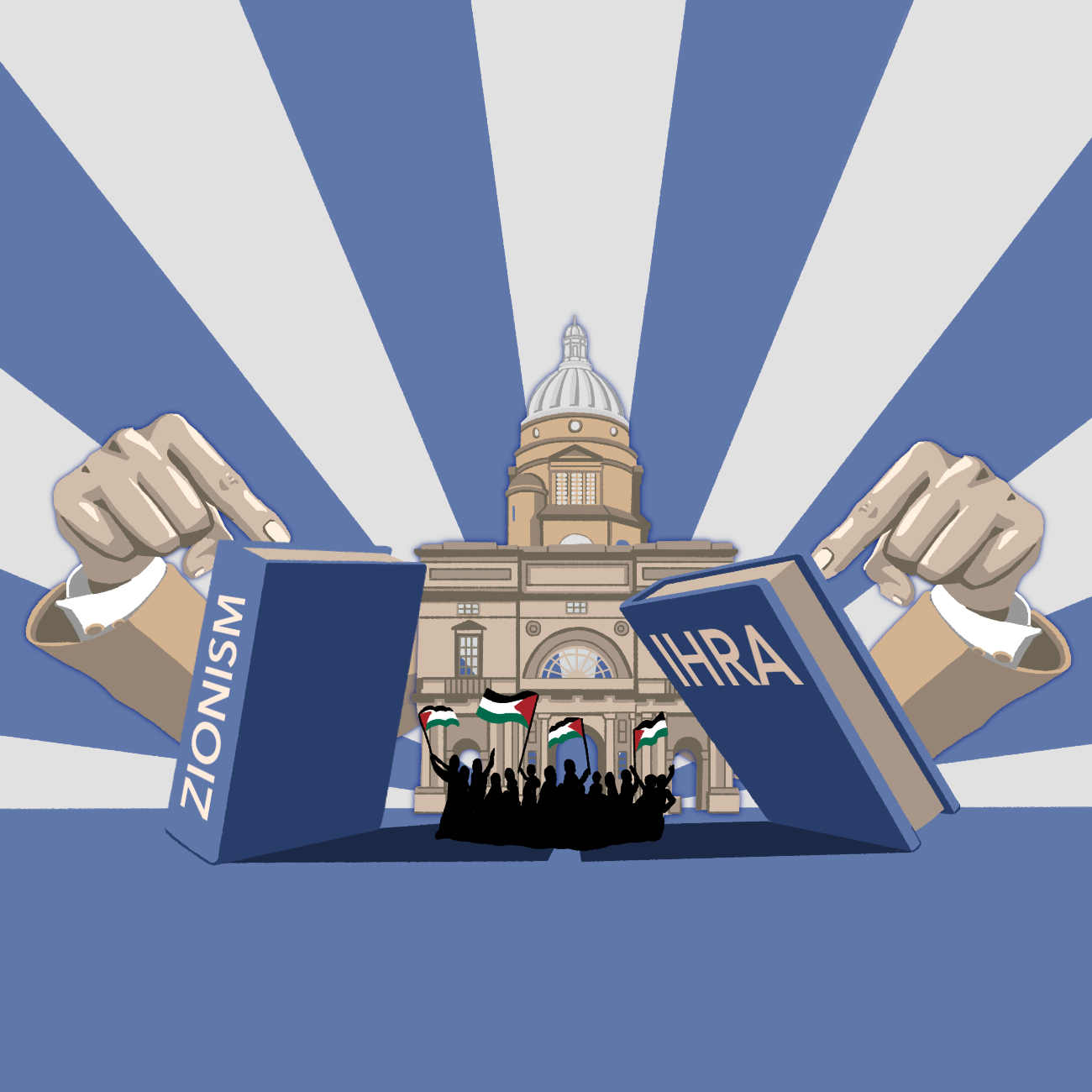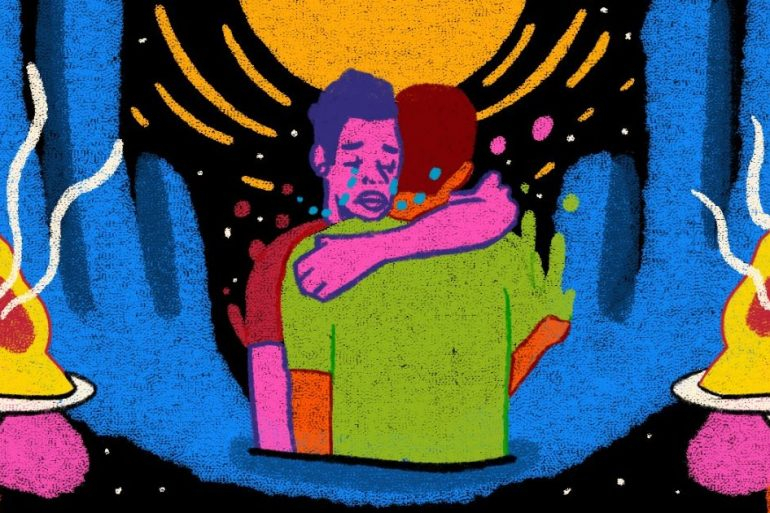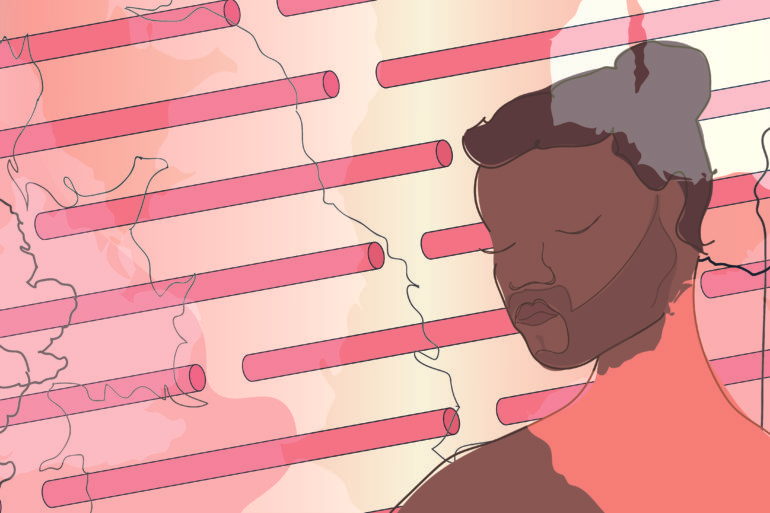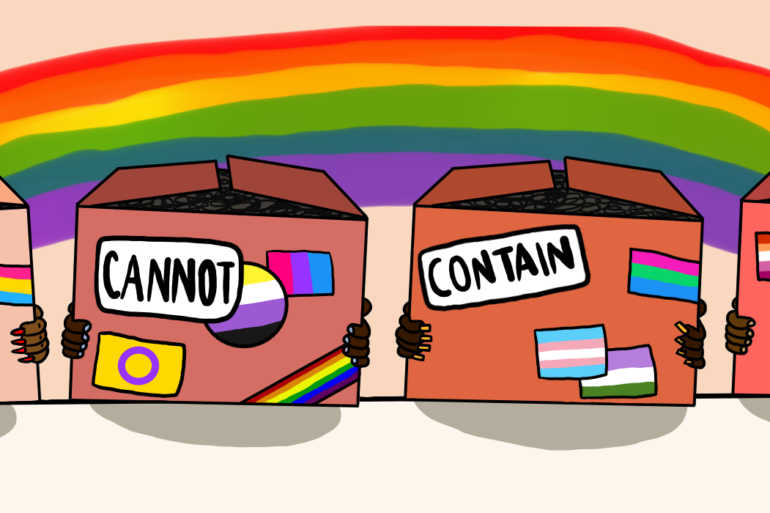Five months into Israel’s genocidal onslaught on Gaza and it has been made abundantly clear that its impunity knows no bounds.
Leaked Israeli intelligence has revealed Israel’s ultimate goal of ethnically cleansing Gazans and displacing them to the Sinai, replicating the Nakba of 1948. The International Court of Justice recently found that South Africa’s allegations of genocide against Israel were at the very least “plausible”, which led the Court to issue provisional measures against Israel and order it to, rather laughably, “prevent” genocide against Palestinians. Despite this, Western governments remain steadfast in their complicity in Israel’s long-systematised murder of Palestinians, refusing to call even for a ceasefire, a bare minimum which would still fail to address (let alone dismantle) Israel’s 75-year occupation of Palestine and its 17-year siege on Gaza.
Complicity in higher education institutions
The West’s complicity is not merely a passive one: the United States continues to send Israel billions of dollars in military aid; Israeli arms manufacturers continue to operate on British land (and globally); and Zionist propaganda is unrepentantly platformed by mainstream media.
Western institutions are aiding and abetting Israel’s crimes by persistently mislabelling Palestinian resistance to occupation as terrorism. This trope is rooted in centuries-long dehumanising depictions of colonised peoples aimed at undermining and de-legitimising anti-colonial struggle.
Western academic institutions play a particularly contemptible role in de-legitimising any anti-Zionist activism taking place in solidarity with Palestinian resistance on their campuses. Students and academics face unprecedented levels of zionist policing, doxxing and targeting.
In North America, student activists and academics have been victims of violent smear campaigns and blacklisting for years. These are spearheaded by Canary Mission, an organisation whose ties to Israeli intelligence agencies are well-documented. Universities across the US have disbanded or otherwise demonised student groups for Palestine. In Columbia University’s case, staunchly Zionist policies have resulted in an environment in which chemical attacks against pro-Palestinian students can occur on campus and go without punishment.
In the UK, the policing of Palestinian activism is emboldened by the Prevent “Counter-Terrorism” Strategy, as universities are instructed to scrutinise and derail pro-Palestinian activism in attempts to pre-emptively snuff it out. This is nothing but a natural extension of Prevent’s primary – and deeply Islamophobic – objective: the widespread surveillance and criminalisation of Muslims (and those perceived to be Muslims).
The IHRA Working Definition of Anti-Semitism is another tool that has been deployed against academics and students across the West to accuse them of anti-Semitism, silence their Palestinian rights advocacy, curtail academic freedom, and to often justify disciplinary action against them. The IHRA-WDA’s stated aim is to combat anti-Semitism by developing a “mutual starting point for discussion and action” to be implemented internationally. However, the European Legal Support Center’s recent report on the IHRA-WDA illustrates how the definition has led to “widespread restrictions of the right of assembly and freedom of expression” with the aim of “[suppressing] human rights advocacy for Palestinian rights and silencing criticism of Israeli government policies and practices.”
On UK university campuses, pro-Palestinian students and academics have been fighting against the adoption of the IHRA for years, as they watch a definition which is branded as non-legally binding be repeatedly interpreted and applied by universities as though it were law. In 2021, even after the Academic Board of University College London called on the University to unadopt the IHRA-WDA, UCL’s administration failed to do so, merely citing a vague intention to “begin a process to consider the practical implications of recognising additional definitions alongside IHRA, and whether doing so would impinge on the fight against antisemitism.” Three years later, the IHRA “remains the only officially recognised definition of antisemitism at UCL.” This situation is eerily reminiscent of my own experience at the University of Edinburgh.
The University of Edinburgh and the IHRA-WDA
As a Palestinian and recent graduate of the University of Edinburgh, I have had direct experience with the discriminatory Zionist targeting of Palestinian students and academics on campus and with the University’s complete failure to both protect us against such attacks and take seriously our concerns surrounding the IHRA-WDA’s weaponisation against us. The IHRA-WDA’s documented “chilling effect” on student activism, as well its chokehold on freedom of speech and academic freedom, are issues that require immediate action from University administrations, yet very little has been done in way of taking any meaningful steps towards this.
After repeated demands from UCU Edinburgh for a formal investigation into the University’s unilateral adoption of the IHRA-WDA to take place, the University finally agreed to establish a Task and Finish Group (TFG) to be headed by the University’s Equality, Diversity and Inclusion (EDI) committee.
Shockingly, yet unsurprisingly, the (pro)Palestinian academics who had spear-headed these demands were not initially invited to sit on this TFG. When these academics – alongside myself and another Palestinian student representative of the University’s Justice for Palestine Society – were finally included, the ‘diversity’ of the group was of course then presented as something worth celebrating.
What followed were two meetings steeped with racist (micro)aggressions characterising people of colour as aggressive and as threats to ‘respectful’ and ‘civil’ discourse. We were expected to be ‘diplomatic’ when faced with a process paraded as liberal debate, with diversity and inclusion as its crowning jewels, that in actuality whitewashed the University’s continued complicity in Israel’s settler-colonial project – whether it be through their historical ties to the violent establishment of Israel, their financial investments or their adoption of the IHRA-WDA.
A ‘discussion’ that silences Palestinians and anti-Zionists
The stilted set-up of the meetings pit Palestinians and Jewish academics and students against each other, and as a result shrouded the entire process in a cloak of identity politics, in which the real subject and object of our debate – the IHRA’s conflation of anti-Zionism and antisemitism – was avoided and tiptoed around. Instead of addressing this, the University’s interfaith chaplain had us pass around a rock – quite literally – to express how anti-Semitism (note: not Zionism) affects us.
In our meetings, we never received an explanation about how such a harmful definition was adopted without staff, faculty or student consultation. We were not given the chance to discuss how a unilateral adoption of the IHRA neutralises the definition’s internationally-recognised controversiality and presents it, as well as the political world-view it emanates from and re-produces, as uncontroversial and not up for debate. As principled anti-Zionists, we should always reject this notion: Zionist talking points that demonise Palestinian advocacy as racist should not be presented as a neutral, apolitical perspective, most especially in academic settings.
In spite of all this, we maintained our dedication to a process that had not been designed to accommodate us in the first place and that continued to subject us to dehumanising zionist talking points. Yet, after a measly two meetings across seven months, between which we received little to no communication from their conveners and no documented minutes of our discussions, the TFG was disbanded.
In her final email to the group, the convener of the TFG said that “…it seems clear that we are not going to easily achieve any consensus about the IHRA definition and its guidance”, as though the reason for this lack of consensus were rooted in anything but opposing viewpoints that are intrinsically political rather than identitarian, in which disagreements arose because of what was being said, as opposed to how it was being said.
What real anti-racism should look like on campus
Out of the shameful failures of the TFG emerges the deeper failure of the University’s EDI strategy to adequately address anti-Palestinian racism. Yet again, honest political discussion and a real institutional commitment to academic freedom and anti-racism were relegated to the backburner. University officials believed they could assuage us with the performativity of these meetings, but it was clear from the beginning that the TFG was never meant to go beyond what it ended up being.
Rejecting the IHRA is a real material way of deepening genuine anti-racist efforts: the University should protect academic freedom so that political discussions on a topic such as Palestine that are at the forefront of such anti-racist efforts across the world can flourish. This is of paramount importance as anti-Palestinian racism becomes institutionally justified across the West – an inevitable consequence of Zionism evidenced by the spike in racist attacks against Palestinians, Arabs and anti-Zionist activists across North America, Europe and Australia.
It is vital to remember, despite what mainstream media wishes to suggest, that none of this started on the 7th October; students at the University of Edinburgh – as well as on campuses throughout the West – have been victims of Zionist targeting for far longer.
Subscribe to shado's weekly newsletter
Exclusive event news, job and creative opportunities, first access to tickets and – just in case you missed them – our picks of the week, from inside shado and out.

A year and a half ago, when the far-right Israeli lobby group Stand With Us handed out islamophobic and anti-Palestinian pamphlets on our campus, the University claimed it was an unauthorised and “ad-hoc unplanned activity”, citing its supposed dedication to “a culture of inclusion, respect and dignity.” Beyond this, the University took no further steps to ensure that racist lobbyists would no longer be platformed. Indeed, as recently as the 5th February 2024, Stand With Us was yet again hosted at the University of Edinburgh.
It is important to note, however, that despite the failures of the TFG during my time at the University of Edinburgh, there have been impressive renewed efforts against the IHRA-WDA since then.
These have been spearheaded by Edinburgh University Kehillah, a group of anti-Zionist Jewish students wishing to, as one member explained to me, “mobilise a collective Jewish presence and voice opposing [the IHRA]” and its homogenisation of the Jewish student and staff body as a necessarily Zionist entity.
Together, the Kehillah and the University of Edinburgh Justice for Palestine Society have occupied a campus building in protest of the University’s myriad complicities in Israel’s genocide. On a poster pasted outside the building, the unadoption of the IHRA-WDA features as one of the protestors’ primary demands. This mobilisation is vital as it has learnt from our previous failed attempt that the successful deconstruction and elimination of institutionalised racism – as embodied in the IHRA-WDA – will not occur through University bureaucracies, working groups or through stilted discussions that essentialise Palestinians and Jews alike, but rather through the communal expression of the students’ will when matters are taken out of hidden meeting rooms and into our own hands.
What can you do?
- Follow and amplify the European Legal Support Centre’s vital work on protecting and empowering (pro)Palestinian activism and academia, and read their in-depth legal report on the IHRA-WDA’s weaponisation of anti-semitism in the particular context of higher education.
- Read up on past failed campaigns to unadopt the IHRA-WDA at other UK universities, most significantly at University College London; note the pattern of higher education institutions engaging in stilted discussions only to then fail to take definitive steps towards the IHRA’s unadoption.
- Engage with nationwide efforts to dismantle the IHRA-WDA.
- Follow the work of anti-zionist student groups across UK campuses and read their joint response to mainstream Zionist efforts to sideline anti-zionist Jewish voices.
- Books:
-
- Erasing Palestine: Free Speech and Palestinian Freedom by Rebecca Ruth Gould
- Boycott Theory and the Struggle for Palestine: Universities, Intellectualism and Liberation by Nick Riemer
- Weaponising Anti-Semitism by Asa Winstanley
-
- Articles:
-
- The IHRA definition of antisemitism is erasing Palestine from UK universities by Rebecca Ruth Gould
- The IHRA definition of antisemitism is an attack on free speech by Malia Bouattia
- Read articles related to Palestine on shado mag HERE
-
- Podcasts:
-
- The Weaponization of Anti-Semitism from the Institute of Middle East Understanding’s This is Palestine Podcast
- Weaponising Anti-Semitism from the Electronic Intifada Podcast
-

- Illustration by Walker Gawande


